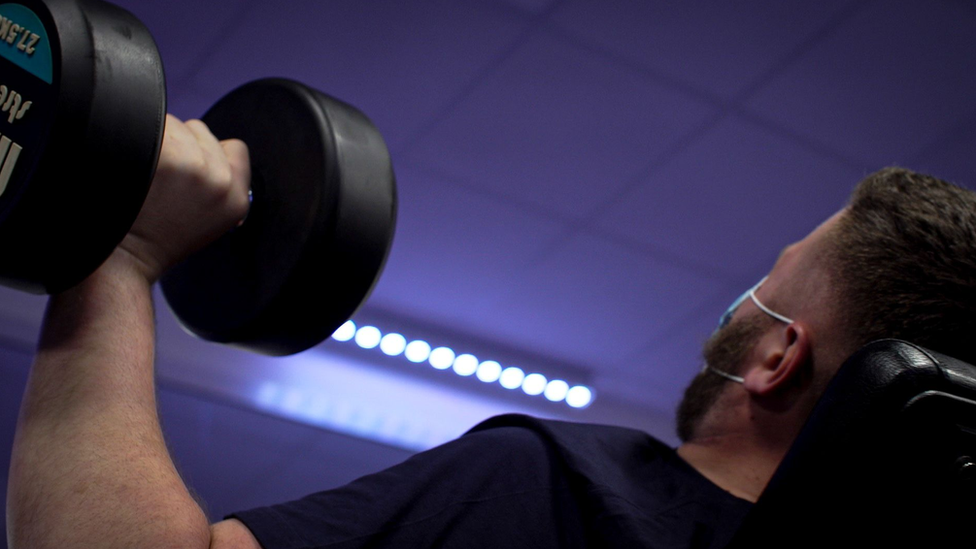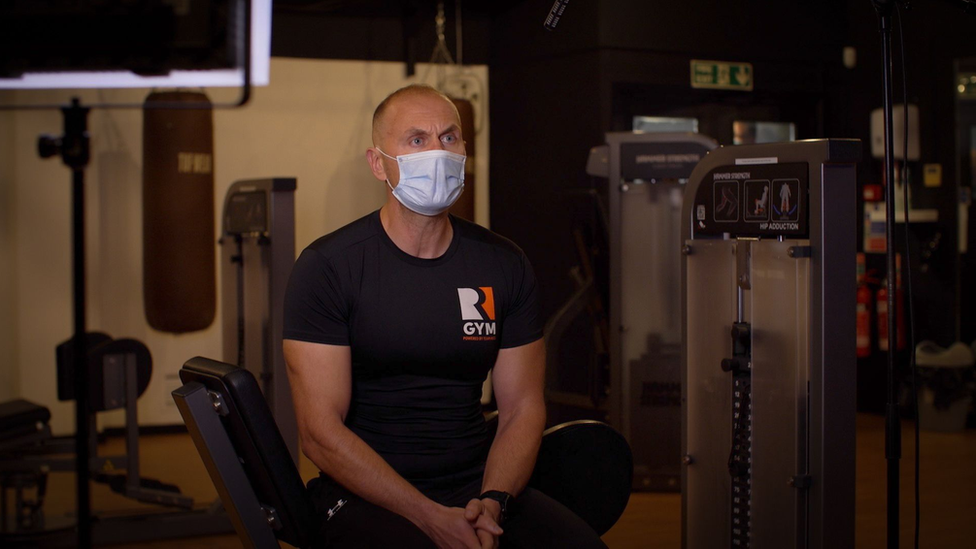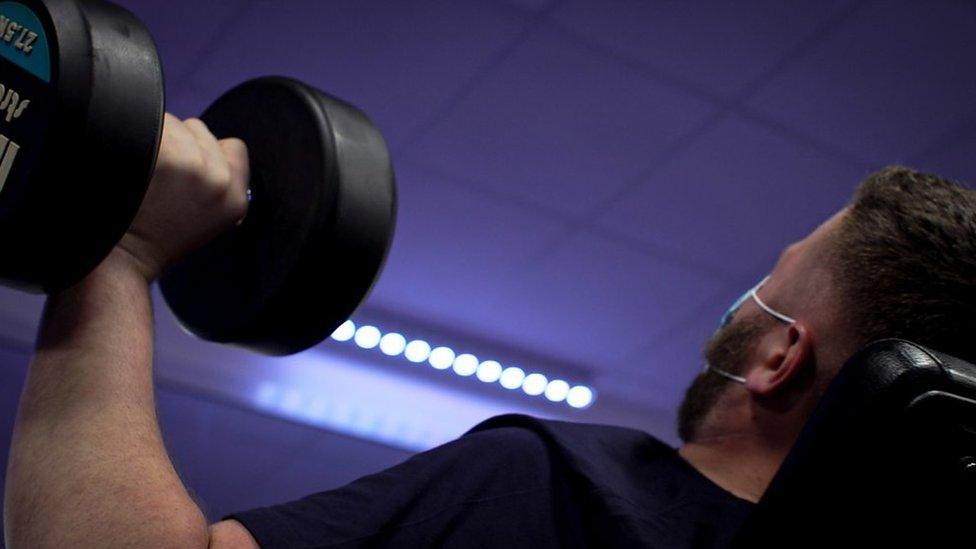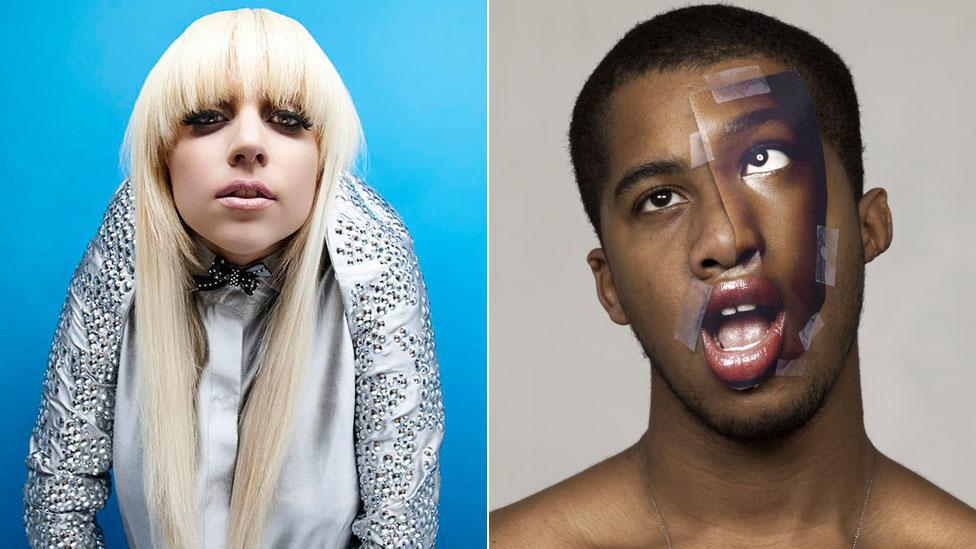Body dysmorphia: 'Bigorexia leading to depression' in gym-goers
- Published
When getting big brings its own mental health problems
Body dysmorphia in some young, muscular men is causing them to see themselves as small, leading to depression and steroid abuse, an expert has said.
"Bigorexia" - the opposite of anorexia - sees people strive to be bigger.
Dr Rob Willson said even action figures "have changed to be bulkier".
Chris, from south Wales, who has bigorexia and has taken steroids for about 17 years alongside weight training, said the pressure to be big was "really frightening".
Body dysmorphia is a mental health condition, external where a person spends a lot of time worrying about flaws in their appearance which are often unnoticeable to others.
Dr Willson, a trustee of Body Dysmorphic Disorder Foundation, said: "We're seeing a change in emphasis on men in the media from a lean physique, to focusing on muscles and six packs."
Chris - not his real name - said: "When I look in the gym now, there are lots of 16 or 17 year olds on substances like steroids - it's the go-to thing due to pressure from things like social media to be big. It's really frightening."
He is now worried about the effects on his long-term health now he has a family, but said when he was younger, he just wanted that bigger body.
"I think you try and try to chase something but over months of constant hard work, training and supplements - what you're putting your body through - is it really worth it?"

The latest Be Real survey by the Mental Health Foundation showed 16 to 25-year-olds saw body image as a substantial concern, external and the third biggest challenge to them behind lack of job opportunities and failure to succeed at school, college or university.
Harry, 25, and Zac, 23, from the Vale of Glamorgan, both work out a couple of times a week and manage a balanced diet and exercise routine.
"It's going in one direction - people seem to be constantly striving to get bigger. People aren't striving to be healthy and functional, they're just striving to look good in a shirt," said Harry.
"Everyone wants to look good but I think things like social media have pushed things to the extreme."
Zac added: "Woman have had those pressures to look a certain way for much longer, but that is now creeping in for men. There certainly is more pressure on them now."
Dr Willson fears one in 10 men training in UK gyms could have the condition, which he said could lead to depression and steroid abuse in extreme cases.
But as going to the gym is a healthy thing to do, people with the issue are less likely to raise concerns, or others may miss the warning signs, he added.
Symptoms include "worrying for over an hour a day about body image, or exercising at a cost, such as going to the gym instead of socialising or education".

Gym owner Richard Rees hopes to educate his customers on a healthy way to diet and exercise
Richard Rees, who owns a gym in Caerphilly, said: "In the last 10 years I've noticed a change with younger men becoming obsessed with the scales, they're always chasing a number."
Due to a higher presence of fitness model pictures online, he said he felt a responsibility to educate and support men to train for health and enjoyment rather than to look a certain way.
Marc Howells, from Merthyr Tydfil, said he enjoyed training, but had seen people push limits too far.
"For me there is a balance - when I'm big enough, I stop. I don't want to go past the extreme where I'm struggling to put clothes on," he added.
Mike Mallet, of the Gwent Substance Misuse Service, said he had seen a large increase in the number of teenagers coming for help, many citing bigorexia as a reason, with some even taking "shortcuts" by using steroids before even setting foot in a gym.
He added: "When I ran the needle exchange project I've had around 600 people that come over the course of a year.
"I don't think I've ever had one say 'I'm perfect - I've achieved everything I've wanted to'. They always want a little bit more, whether it be definition or muscle."
- Published5 November 2020

- Published14 May 2019

- Published5 November 2018

- Published21 September 2015
